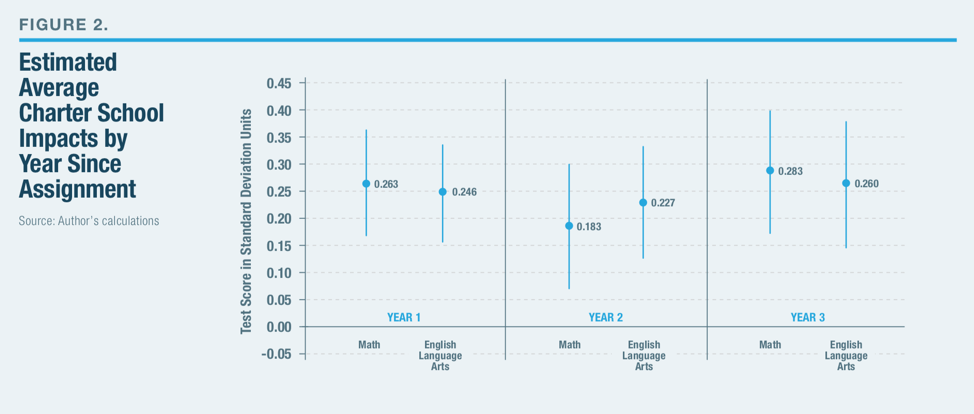Recently the report, Charter Schools in Newark: The Effect on Student Test Scores, was released, estimating the effect of enrolling in a charter school on student standardized test scores in Newark, New Jersey.
Key findings of the study include:
- “Enrollment in a Newark charter school that participated in the common enrollment system leads to large improvements in math and English language arts (ELA) test scores, on average.”
- “The benefits of charter school enrollment do not appear to vary meaningfully depending on a student’s race, gender, or qualification for free lunch—though these estimates are based on smaller sample sizes and are thus less precise.”
- Learning gains were even more pronounced when the study isolated students in the city’s two largest charter school networks – KIPP Newark and Uncommon Schools – North Star Academy.
- The magnitude of the impact from attending a Newark charter school is comparable to those found in prior research on charters in Boston and Denver…”attending a Newark charter school has a larger effect than 80 percent of other educational interventions that have been studied using an experimental design”, according to a paper by Brown University Professor Matthew Kraft.
This report is significant because, in Newark, the charter sector has grown from educating just 7 percent of the students in 2006 to an estimated 38% in 2019 and could reach 50% in future years. Relations between the city’s district and charter schools have radically improved in recent years, but the study comes at a time when tensions have resurfaced during a recent debate over whether to close four Newark charter schools.
These findings underscore the need for expansion and funding that high-achieving charter schools deserve. All children deserve an excellent education, regardless of where they were born, their cultural background, their socioeconomic status or their zip code.
“Figure 2 illustrates the results from estimating the effect of enrolling in a participating charter school on student math and ELA scores one through three years later. The analysis estimates that enrolling in a charter school that participated in Newark Enrolls, rather than a traditional public school, leads to an increase of 0.263 and 0.246 standard deviations in a student’s score that year in math and ELA, respectively. These results are statistically significant and are considered “large,” ac- cording to the standard for interpreting effect sizes in education recently posited by Kraft.16”

